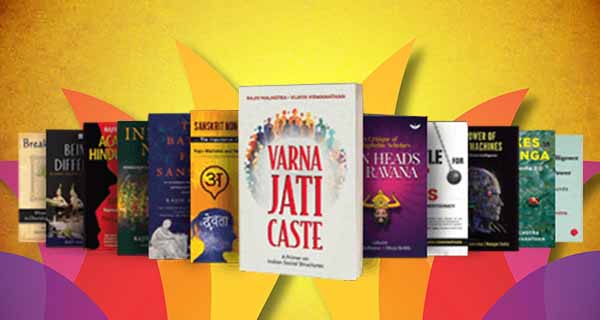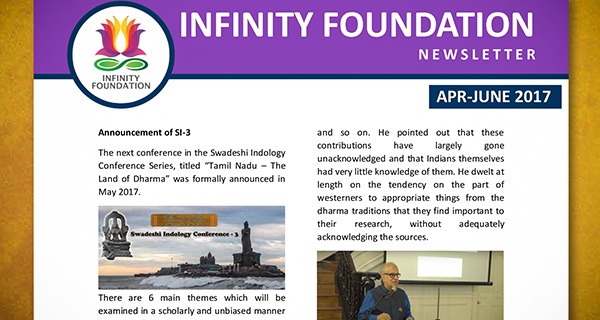Forestry Proposal
Grant Proposal:
International Conference on Indigenous Indic Traditions in Forestry:
Lessons for Contemporary Sustainable Forest Management
Grant Proposal submitted to:
The Infinity Foundation,
53 White Oak Drive,
Princeton, NJ 08540
To be organized by International Network on Ethnoforestry,
Indian Institute of Forest Management,
Nehru Nagar, Bhopal, India-462003,
www.inef.org and www.iifm.org
Introduction
This proposal is to organise the International Conference on Indigenous Indic Traditions in Forestry: Lessons for Contemporary Sustainable Forest Management at Khajuraho in February 2001. The conference shall be facilitated by Deep N. Pandey. The event is proposed to be sponsored by The Infinity Foundation, USA and organised by the International Network on Ethnoforestry and Indian Institute of Forest Management, Bhopal, India.
This conference is intended to bring together practicing foresters, natural resource managers, scientists, community forestry experts, indologists, and scholars who are working on Indigenous Indic Traditions in Forestry in an effort to discuss and move forward beyond the barriers that either continue to hamper the revival of Indic Traditions or restrict the integration of Indigenous Indic Traditions and indigenous knowledge and the formal sciences.
Select 20 Indian participants shall be invited to participate in the conference. In addition, voluntary participants are also welcome to join by registration to the workshop. They will, however, be required to pay the registration fee. Participation shall be open to the foresters, historians, Indologists, natural resource managers, educationists and development practitioners from around the world. Participation will also be solicited from the foresters working on indigenous knowledge, ethnoforestry and Indic traditions in forestry.
As noted above, voluntary participants willing to participate in the conference shall be required to pay a registration fee (US $ 300/- for foreign participants and Rs.1,500/- for Indian participants) in order to finance the additional costs of participation and also the cost of conference kit. Voluntary participants shall have to pay for their travel, stay etc. Organisers will have to bear the cost of the invited 20 Indian participants. Organisers will put the name of the Infinity Foundation on conference kit and programme announcements as ‘sponsored by The Infinity Foundation, USA’.
The dates for the event are proposed to be on 8th to 10th February 2001.
Theme of the Conference
It is interesting to note that forestry traditions have existed from even before the known sources of Indic traditions were encoded. And, these have continued to exist in vedic period, later vedic period and the puranic literature. In fact, if we consider the vedic reference closer to theory then the later vedic and puranic texts are definitely the practice manuals! Following these manuals common masses replicated the prescriptions on the ground for the benefit of the humanity. The most important fact is these traditions still continue to survive and continue to be practiced by the masses.
For instance, since the Rigvedic period through Puranic times there are numerous descriptions of the trees groves and tanks (talabs) in India. Varahamihira in 5th century AD wrote and with great detail on the tanks and trees relationship. These prescriptions were considered sacred and ethic demanded that the people should practice for the common good of the humanity. This phenomenon can be understood as a proven fact getting institutionalized by the cultural traditions. What resulted from this is amazing! A total of 1.53 million village tanks built from 2000 BC onwards still survive in India today. These tanks vary in size (0.5 ha to several hundred ha. of water harvesting area and a grove of few trees to very large groves). If India wants (there is no choice, though) sustainable development no science alone can solve the water problem. It must revive and support the traditions that are useful and have stood the test of time. In fact at several places revival of such traditions has been very encouraging. Examples suggest that this has resulted in the sustainable forestry and livelihood security.
Another case, for instance, is the ethnoforestry or the indigenous knowledge on forests in India. Several references are available on the role that forests and trees play and how to manage these resources in Vedas, Upanishands, Mahabharata, Ramayana, Arthasastra, and Brihatsamhita etc. These are also reflected in the contemporary landscape and indigenous management forms. This has been illustrated with assessments of the various types of indigenous forests, trees and landscape management in several parts of India. This has a great relevance for the history of forest management and the future of sustainable forest management in India. To clarify the issue of equity of knowledge adopted here is the framework of empowerment, security and opportunity (from the discussions on draft World Development Report, The World Bank 2000):
- Equity of knowledge as Empowerment: This can be understood as making the state institutions pro-people and pro-people’s knowledge, thereby reducing the social barriers to participation and enhancing the capacity of the poor to make choices to address the livelihood security and sustainability.
- Equity of knowledge as Security: By making the productive use of collective wisdom of formal and traditional sciences we shall be able to help the poor to manage the risks they face because of the destruction of the resource-base and societal hindrances.
- Equity of knowledge as Opportunity: The process of access, transmission, integration and field application of indigenous knowledge and Indic traditions with formal strategies promises to enhance the productivity and efficiency of context specific developmental interventions for attacking the poverty and addressing the sustainability of natural resources.
The conference will also explore the empirical evidences across cultures and nations to prove that when indigenous knowledge, indigenous institutions and indigenous strategies are combined with scientific strategies and knowledge the result is far more productive than as understood currently.
Basic Issues
The Conference will explore several five basic questions. Five basic issues that the conference will explore are:
- What are the indigenous Indic traditions in forestry?
- What is the history of the neglect and destruction of these traditions?
- How are these traditions reflected in contemporary landscape in India?
- How can the society benefit from Indic Traditions in order to achieve the objectives of sustainable forest management? In other words, how the equity of knowledge can be achieved between the local communities possessing the indigenous knowledge and formal forestry scholars?
- What are the contemporary examples of integration of Indic traditions with modern forestry?
Contributions that examine the above issues may relate to:
- Indigenous Indic Traditions in Forestry including various ethnoforestry practices such as sacred groves, sacred gardens, home gardens, sacred corridors, tanks and trees, community-conserved landscapes etc.
- Ecological, Economic and Societal dimensions of Indigenous Indic Traditions in Forestry
- Indigenous Indic Traditions in Natural Resource Management
- Indigenous Indic Traditions in Water Management including Traditional Water Harvesting Systems
- Role of Indigenous Indic Traditions for Sustainability
- Case studies that demonstrate the applicability and integration of Indic traditions with modern science?
- Role of Indigenous Indic Traditions in Forestry for Empowerment, Opportunity and Security; Carbon Sequestration; Watershed Protection; etc.
Submission Guidelines:
Abstracts for proposed papers and presentations shall not be more than 1 page in A4 size, with single line spacing in 11 point font size (Times New Roman) in msword format. Include the paper title, author name(s), proposed presenter(s), affiliation(s), the mailing address, phone, and email for the contact person. It should also accompany an abbreviated curriculum vita for each participant in not more than 125 words and a brief letter of intentions to participate in the conference.
Final papers should not be more than 30 pages in A4 size, with single line spacing in 11 point font size (Times New Roman) in msword format. Include all illustrations, table, photographs etc. in one file. Name the electronic file as abbreviation containing initial letter for the first, middle and last name (for example a contribution being sent by Deep N Pandey shall be saved as DNP.doc).
Prospective participants should keep in mind an interdisciplinary consultation attempting to facilitate the integration of indigenous indic traditions in forestry and formal science rather than a specialist audience.
Important deadlines:
- Expression of interest for participation: as soon as possible, preferably by October 25, 2000.
- Abstract and Proposals for presentation are due no later than November 30, 2000.
- Notification of acceptance will be sent on December 20, 2000.
- Final papers and presentations must be submitted on or before January 15, 2001.
Send abstracts and proposals for presentation electronically to:
Deep Narayan Pandey,
Associate Professor,
Indian Institute of Forest Management,
Bhopal, India-462003.
We will prefer to receive the abstract, proposals and final papers by e-mail at: dnpandey@vsnl.com or dnp@satyam.net.in
Output
Organizing the Conference in which 20 invited scholars and additional number of voluntary participants contribute their knowledge. A report will be submitted within 6 months from the completion of the conference.
Host Institution
Indian Institute of Forest Management, Bhopal, India
Indian Institute of Forest management (IIFM), Bhopal, with excellent teaching, training, education and consulting facilities, is situated in the heartland of India. It is a unique national institution of international repute. IIFM was established in 1982 as an autonomous Institute under the Government of India with an objective of providing leadership in the field of forest management by developing professional excellence through research, education, training, extension and advisory activities. During its past one and a half decades of being in existence, IIFM has gained significant experience working with policy makers and international donor agencies on one hand, and a wide range of professionals like foresters, development workers, academicians, NGOs, and local people on the other. In this process, it has contributed to the conceptual shift in the field of forest management, towards the community participation in the management of forests.
IIFM has taken the lead in the field of C & I for sustainable forest management in India. The Bhopal-India Process of identification and implementation of Criteria & Indicators for sustainable forest management is known and recognized world-wide.
The first, and so far the only one of its kind in the South Asian Region, IIFM is all set to provide the leadership in the field of Sustainable Forest management (SFM). Realizing the global importance of the subject, IIFM has already initiated the Bhopal-India Process to evolve a set of ‘Criteria and indicators’ for SFM in India and look forward to extend the same, with appropriate modifications to other countries in the region. In this process, the multi-disciplinary faculty team of IIFM – a unique combination of technical forestry, management, social and behavioral sciences – adds strength through its educational, training, research and consulting activities.
Being the apex institute of Ministry of Environment and Forests, Government of India, IIFM had started working in the field of participatory forest management and community forestry since beginning. Promulgation of 1988 national forest policy and formally Govt. of India resolution on JFM on June 01, 1990 paved the way for community participation in forest management. Over a decade since then, IIFM has accumulated considerable experience and expertise in this field through faculty and participants research and training to various partners.
IIFM also functions as nodal institution for promoting ‘institutional support for JFM’ under National Support Group (NSG) for JFM and through this process it has gained experience in working with various field level functionaries and organizations, State Forest Departments and NGOs.
The FAO-FTPP Program in collaboration with Regional Community Forestry Center (RECOFTC) at Bangkok provides IIFM the scope to generate case studies in community forestry and offer international courses in the same subject. With FAO-FTPP, IIFM collaborates with leading national level organizations like Society for Promotion of Wasteland Development (SPWD), Institute of Bio-social Research and Development (IBRAD), Indian Institute of Technology, Kharagpur, Indian Institute of Management, Ahmedabad, Ford Foundation (India), Indian Institute of Science, Indian Statistical Institute and State Forest departments.
IIFM is recognized as a very reputed training center in the field of forestry. The issues addressed include Sustainable Forest Management, Participatory Forest Management, Ethnoforestry and Indigenous Knowledge on Forest Management, Joint Forest Management, and Community Forestry. Forest managers, community forestry professionals, grassroots functionaries, researchers and trainers attend training courses from government and non-government organizations across the region.
IIFM has come to be recognized as a neutral and impartial organization involved in policy analysis extending expertise to the State Forest Departments and Govt. of India on key issues of participatory forest management. The Institute has been able to act as a moderator between State Forest Departments and NGOs, on such contentious issues as participation and equity in benefit sharing. Several trainings for NGOs, foresters and community representatives have been organized. These efforts have been remarkably successful to bridge the gap between managers and activists.
IIFM offers two educational programs viz. PG Diploma in Forest Management (PGDFM) for fresh graduates of different streams and M.Phil course on Resource Management (MRM) for serving professionals. The participants of PGDFM under go organizational training in which they produce study reports and the MRM participants, as a part of the curriculum carry out dissertation work and submit a thesis. As Participatory Forest Management/community forestry is one of the focus areas of research at IIFM, substantial work has been carried out in this area though above student’s research, guided by the faculty. Since both the courses consist of participants FDM SAARC countries and these participants are encouraged to carry out studies in their respective country situations, IIFM stands benefited of accumulated research experience across the countries in the subcontinent.
Recently, IIFM launched the International Center for Community Forestry. It is a categorical manifestation of collaboration already going on between IIFM and other national and international bodies like RECOFTC, CIFOR, FAO, IUFRO, ITTO, NIES (Japan), Ford foundation, Asia Forest Network, SIDA, IDRC, ADB, World Bank etc.
C.V. of the Conference Coordinator/Facilitator
Deep Narayan Pandey joined the Indian Forest Service in 1988 after a five-year stint in State Forest Service in Madhya Pradesh, India. Currently he is working as Associate Professor in Indian Institute of Forest Management, Bhopal. He has devoted himself to the cause of the sustainability of forests and livelihood security of indigenous communities. His published work on Indigenous Indic Traditions in Forestry is widely respected.
Initiating the participatory forestry in Rajasthan, India, between 1992 and 1999 he mobilized people in 104 villages to form Village Forest Committees. To enhance the capacity of stakeholders he organized 291 village trainings and training in which 21,000 men, women, school children NGOs, foresters participated. This resulted in local and State action towards protection of forests, afforestation, people’s entitlements to biomass, and environmental protection in ecologically threatened areas.
Applying the integrated pool of indigenous knowledge, formal forestry and participatory forestry Pandey carried out 20162 ha. plantations of indigenous multiple-use species and also distributed 8.55 million seedlings. His other field works include integration of indigenous knowledge with scientific forestry, eco-restoration of mined areas, Village Common Fund, Sacred Grove Conservation, Low-cost regeneration, Operation Million Neem, and Microplanning.
He is also playing a key role in policy and advocacy for participatory forestry in India through National Network on Joint Forest Management and Asia Forest Network. Apart from quality research papers, he wrote 8 books with 25000 copies sold in India and elsewhere.
He received the highest national honor in forestry in India, Indira Priyadarshini Vrikshamitra Award, given by the Government of India for the year 1994 for outstanding field work. He also won the Hewetson Gold Medal for the Best Forester in 1984, Government Silver Medal for Forest Management in 1987, and Environment award in 1995, given by a leading Indian NGO.
More recently, Pandey established INEF-International Network on Ethnoforestry and he is the Coordinator of the INEF. He organised several international conferences and training programmes including the ongoing workshop and training series of The World Bank-WWF Global Alliance for Forest Conservation and Sustainable Development in South Asia.
Indian Institute of Forest Management,
Post Box No 375,
Nehru Nagar, Bhopal-462 003,
Telephone 91 755 775716, 773799, 765125,
Fax: 772878
E-mail: dnpandey@vsnl.com and deep@iifm.org and deep@inef.org
Budgetary RequirementsNumber of invited Indian Participants: 20
| Particulars | Cost $ |
| A. Travel: | |
| 1. Participants’ Travel @ 175 US$ per person, 20×175 |
3500 |
| 2. Coordinator/Facilitator’s Travel @ 200 US$ per person, 1×200 |
200 |
| B. Lodging, Boarding and Field Tour:> | |
| 3. Accommodation @ 25 $ per day/person: 22x25x3 |
1650 |
| 4. DSA and Food for @ 15 US$ per day/person: 22x15x3 |
990 |
| 5. Field Tour, hiring of vehicles and other logistics (three days) |
400 |
| C. Workshop Arrangements: | |
| 6. Conference venue arrangements for two days |
500 |
| 7. Stationery, Conference Kit, Reference Material/papers |
750 |
| 8. Honorarium to Conference Coordinator/Facilitator for planning, preparation, report drafting, organizing and management of the event: US $ 2000 |
2000 |
| 9. & 10. Honorarium to support staff US $ 100, and resource person US $200 |
300 |
| 11. Miscellaneous Expenditure |
140 |
| Subtotal |
10430 |
| 12. IIFM Institutional Cost (15% of cost approx.) |
1570 |
| Total Budget Requirement for Three Training Courses |
12000 |
| Total Budget |
$ 12000 |



